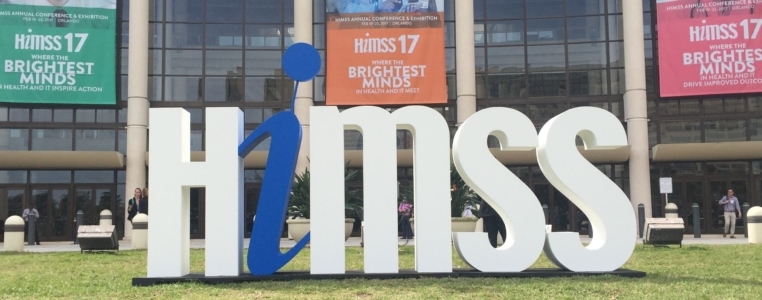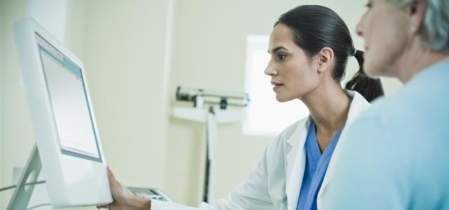By John Lynn, founder, Healthcare Scene
This post originally appeared on Hospital EMR & EHR
I had the tremendous opportunity to spend the day hearing and interacting with a group of healthcare leaders across the entire spectrum of healthcare. I was invited to the Healthcare Forum as a guest of The Breakaway Group. They’d told me that the group would have a large number of influential people in healthcare and they were right. Along with recognizable names, like Dr. Farzad Mostashari, Glen Tullman and Lee Shapiro, there were a number of hospital CEOs, CIOs, and CMIOs. There were doctors, insurance executives, and many other executives which made for a very well rounded and interesting discussion.
I won’t go through an entire recap of the event and all the things that were shared during the various presentations. If that interests you, go and read through my @ehrandhit tweets and check out the #simplehealth hashtag and you’ll get a good overview of everything that was presented from those of us live tweeting the event.
I do want to highlight a couple key takeaways and then suggest a list of major themes we’ll be confronting in healthcare.
Farzad Mostashari, MD was the event keynote with a great view on the future of healthcare. His intro was perfect when Charles Fred, Founder & CEO of The Breakaway Group, said, “The wedding of healthcare and technology is over and Farzad has joined us for the marriage.”
Farzad’s message covered a lot of ground including a message of optimism for healthcare, the need to affect all parts of healthcare both small and large, and using the “most underutilized resource in healthcare…the patient.” He also talked about the need for some accountability in healthcare. Farzad suggested that there’s no “scale” in healthcare that we can step on and know how well we are doing. We need the data to be able to tell us how we are doing so we can improve. Without the data we almost always overestimate how good we are and underestimate the things we’re doing poorly.
One of the most powerful concepts Farzad discussed was around being careful not to change healthcare from a social contract into a financial contract. He said, “Incentives and money aren’t always the same.” This point was illustrated brilliantly by one of the attendees who said, “An ACO should be the way we live and breathe healthcare every day and not just a reimbursement program.” I think we often need a reminder to not let the business of healthcare overwhelm the care provided.
Finally, for those of us who love EMR and EHR, Farzad offered this incredible perspective on where we are at when it comes to EHR progress, “We are at about 50% EHR adoption and about 5% workflow adjustment.” It’s the first time I’ve seen him acknowledge the idea that EHR adoption isn’t enough. In fact, the initial implementation of an EHR is just the very first step in a process of really optimizing the EHR for your workflow and for improved patient care. It does make me wonder what things ONC might do in the future to try and address the 95% of EHR workflow adjustments that remain.
I’m sure I’ll be pulling nuggets of information out of Dr. Jennifer Brull, Bill Rieger, Dr. CT Lin, Ashwin Ram, and Heather Haugen’s talks in future posts. They all offered some unique insights into quality of care, EHR leadership, patient engagement, patient portals, and EHR implementation.
Here’s the list of themes from the day as identified by those who attended:
- Using Data
- Transparency
- Need for Leadership to Change
- Adoption vs. Implementation (EHR)
- Patient and Family Involvement in Care (through social media often)
- Change Happens at a Different Pace for Different People
And then we identified the following important future healthcare topics:
- Interoperability
- Social and Mobile
- Patient Engagement
- How Do We Ask the Best Questions
- Make the Right Thing to Do, Easy
- Big Data, Small Actions (for doctors and patients)
- Changing Reimbursement
The Healthcare Forum at TEDMED was a well organized event that provided a lot of food for thought. My only complaint from the experience was that pretty much everyone in the room could have been a speaker at the event. Thinking about that makes me wish there had been more time to hear from those in the audience. Although, it isn’t a bad thing to leave us thirsting for more.
John Lynn is the Founder of the nationally renowned blog network Healthcare Scene, which consists of 15 blogs that have been viewed more than 10 million times. John can be found on Twitter at @techguy and @ehrandhit.
________________________________________________________________________________________________________
John Lynn filed this content as a paid contributor to Xerox. The content is the author’s opinion and does not necessarily reflect the views of Xerox.


